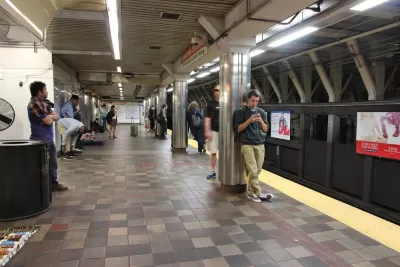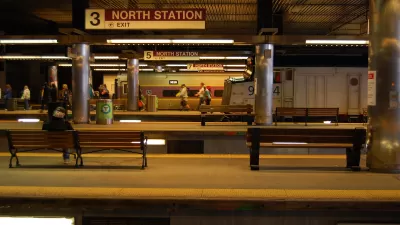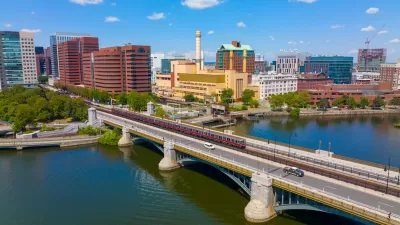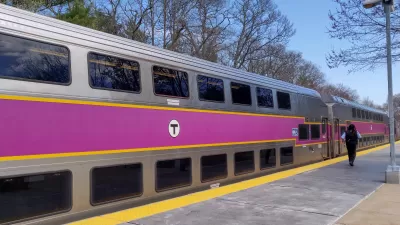With ridership revenue still lagging and fatal incidents plaguing the Boston-area transit agency, one writer argues that state lawmakers must step in to fund upgrades for the aging system.

After multiple fatal incidents, Rich Barlow argues that the Massachusetts Bay Transportation Authority (MBTA) “needs a state rainmaker” to upgrade its infrastructure and improve safety for its riders and operators. “The Massachusetts Legislature, under pressure from inspectors at the Federal Transit Authority, sent Gov. Charlie Baker a state budget with $266 million for correctives, and separate bond bills authorizing $400 million for infrastructure upgrades to meet the feds’ demands.”
According to Barlow, “The budget includes money for new dispatchers to end debilitating shifts of up to 20 hours. Staff shortages forced summer service cuts that likely will leave some commuters cooling their heels into next year.” Meanwhile, a proposal to reduce fares for low-income riders could cost an additional $85 million.
“Ridership remains more than one-third off its pre-pandemic level, depressed by remote work, virus surges, and users’ frayed patience with service problems.” But many commuters remain dependent on public transit, and encouraging transit over cars is one of the most effective ways to reduce greenhouse gas emissions. Thus, solving the agency’s financial woes is incumbent on state leaders, Barlow writes. “Massachusetts leaders long ignored their duty by ignoring an agency that serves more than just commuters; it’s simultaneously an anti-poverty policy — not everyone can afford a car, and those who can’t need transportation to their jobs — and a climate change policy.”
FULL STORY: Good grief, get the T some help

Study: Maui’s Plan to Convert Vacation Rentals to Long-Term Housing Could Cause Nearly $1 Billion Economic Loss
The plan would reduce visitor accommodation by 25% resulting in 1,900 jobs lost.

Alabama: Trump Terminates Settlements for Black Communities Harmed By Raw Sewage
Trump deemed the landmark civil rights agreement “illegal DEI and environmental justice policy.”

Why Should We Subsidize Public Transportation?
Many public transit agencies face financial stress due to rising costs, declining fare revenue, and declining subsidies. Transit advocates must provide a strong business case for increasing public transit funding.

Paris Bike Boom Leads to Steep Drop in Air Pollution
The French city’s air quality has improved dramatically in the past 20 years, coinciding with a growth in cycling.

Why Housing Costs More to Build in California Than in Texas
Hard costs like labor and materials combined with ‘soft’ costs such as permitting make building in the San Francisco Bay Area almost three times as costly as in Texas cities.

San Diego County Sees a Rise in Urban Coyotes
San Diego County experiences a rise in urban coyotes, as sightings become prevalent throughout its urban neighbourhoods and surrounding areas.
Urban Design for Planners 1: Software Tools
This six-course series explores essential urban design concepts using open source software and equips planners with the tools they need to participate fully in the urban design process.
Planning for Universal Design
Learn the tools for implementing Universal Design in planning regulations.
Smith Gee Studio
Alamo Area Metropolitan Planning Organization
City of Santa Clarita
Institute for Housing and Urban Development Studies (IHS)
City of Grandview
Harvard GSD Executive Education
Toledo-Lucas County Plan Commissions
Salt Lake City
NYU Wagner Graduate School of Public Service





























